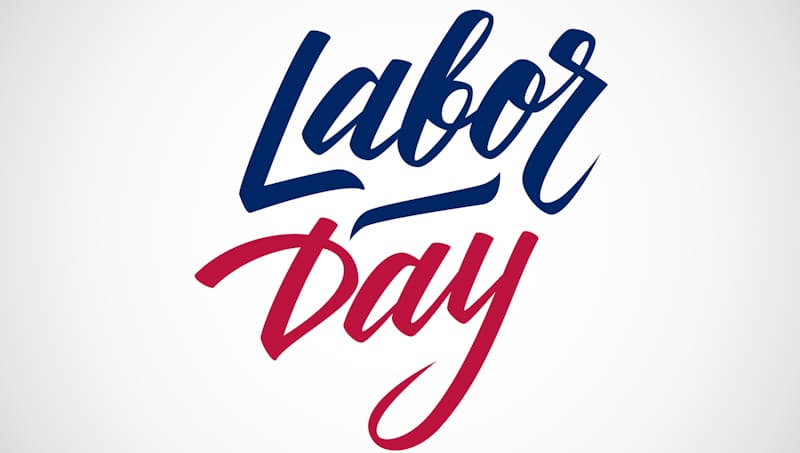In normal practice, it can become a bit tiring to constantly remember when and when not to capitalize certain words and phrases as there are so many rules. The same scenario occurs when you ask yourself if you capitalize “Labor Day”. When and when not to focus on such matters? The answer is that,
Labor Day will be capitalized regardless of how it is used in a sentence. As it is referring to a very distinct holiday, therefore, in the rules of grammar, it is considered a proper noun. So “Labor Day” would be capitalized when used in any form in any type of sentence.

Many questions arise after reading the above paragraph such as what a proper noun is and what it is meant by referring to a distinct holiday. So, we will explain the core fundamental rules of capitalization along with an adequate understanding of the various exceptions.
Is It Possible For Any Impact On Capitalization To Happen When Used In Various Sentences?
Sometimes, it may appear really confusing and quite strange for specific words and phrases to be capitalized when you expect that they won’t be capitalized in the first place. Especially when the tone and structure of the sentence are different but there is zero impact on the words and phrases themselves.
For instance, words that don’t seem like a distinct name or place such as Gregory or Chicago, etc. tend to make us question the fact that do you capitalize “Labor Day”. When and when not capitalize words and phrases such as these in various sentences.
The perfect way to provide the point idea would be by illustrating a convenient example:
- Labor Day provides valuable insight to many people about its importance.
- I love celebrating Labor Day.
From the very first sentence, we can see that Labor Day was used as a subject and it was capitalized. In addition to this, it was also capitalized in the second example as well. The rules and the reasons for their capitalization shall be explained in the following paragraph. However, it has been made clear that capitalization is not impacted by the use in different sentences.
Are There Simpler Rules For Capitalization Of Words and Terms Other Than Labor Day?
If we take a look from a general perspective, capitalization would seem tricky and hard to understand. The core idea itself doesn’t create confusion but rather the varying set of rules makes it quite nauseating to keep up. So to clarify, here are some simple ways for you to remember the general criteria of capitalization.
-
The initial alphabet of the commencing word
It is imperative for you to remember one of the most general rules of capitalization which is that in every case, the initial alphabet of the starting word is always capitalized. This means that each letter after a full stop or colon will be capitalized. For instance, “Take the medicine. Make sure to meet the doctor before you head home.” Now in this example, the first alphabet after the period and the first letter of the very first commencing word has been capitalized.
The reason is to avoid mixing the two different sentences.
2.Distinct person or object
Each commencing alphabet of the distinct name or a person is also capitalized to specify the uniqueness of the object/item itself. In the case of a common noun, capitalization doesn’t take impact because of the general blend of the words in a sentence that don’t require a common noun to stand out. For instance, “We love spending time with Christen and Tommy rather than our other friends.”
In this example, “Christen” and “Tommy” are distinct names and hence are capitalized to stand out in a sentence. Whereas, the common noun “friends” isn’t capitalized as it is a part of the general mix of other nouns and words that don’t require particular highlight.
3.Traditional holidays and days of the week
Quite often, it is considered that days of the week or even holidays are common nouns and are not capitalized. However, it is exactly the opposite of the very thinking that these words are capitalized due to their specific nature. For instance, “Let’s go to the park on the following Monday after Labor Day.”
In this instance, the question is answered: you do capitalize Labor Day. When and when not to capitalize other such variation of terms has also been answered that they are capitalized as they are proper nouns.
4.Capitalization of “I”
Many sentences have very frequent use of the pronoun “I”. This is capitalized only when it is used to give emphasis on the speaker himself. For example, “It is hard for me to accept that I lost all my assets.” Now in this scenario, the speaker represents himself in the situation and uses the pronoun. Since it is explicitly referring to the speaker, therefore it will be capitalized.
By following the most basic and simple guidelines to capitalize, you will hardly be able to question the fact that do you capitalize “Labor Day”. When and when not to capitalize on different words and terms in different sentences while following capitalization rules.

Can There Be Clear Exceptions To The Existing Rules For Capitalization?
If you are wondering this question, chances are that you are close to your desired answer. No matter how solid and concrete these rules of capitalization may seem but there are always bound to be some sort of exception. You might not realize these exceptions quite easily as they are sometimes hard to pinpoint when certain words and phrases are used in conjunction in a sentence.
Some of the common exceptions to the stated rule are given below.
1.Statements within quotation marks
Generally, the sentences that are enclosed in quotation marks are always capitalized even though they are not specific nor they refer to any person. The reason is that these sentences are completely different and explain a different scenario that is told in their original form by the third person. So these sentences are considered as new sentences that require the initial alphabet of their commencing word to be capitalized.
For instance,
- James told Harley, “Carly takes a long nap during work hours.”
- Samantha says to Jessica, “Iva doesn’t like to date.”
In these examples, all the initial alphabets of the very first letter in the quoted sentences are capitalized as they direct the message from another person in the same manner as told.
2.Distinctive common nouns
There are some common nouns that are sometimes explicitly used as proper nouns. This occurs when a common title with high ranks associated with it is specified upon mentioning. For instance,
- The President of the United States has asked his people to join hands for the ceremony.
- The State Senator offered to lend a helping hand to the people.
In both of these examples, the titles are common but they are used explicitly to specify the known entity or the known person in the context of the sentence.
3.Articles present in titles
In most cases, if there is any title or any unique name of the song, movie, or book, the initial alphabet of all the words used in the title are capitalized. For instance, “Silent Springs” or “John Wick” etc. However, if there are any articles present in the title, they won’t be capitalized unless these articles are the starting alphabet of the commencing word. For example,
- “In the Name of Love”
- “Stop and Stare”
Thus, all articles, if they are not the starting letters of the important title, will not be capitalized.
Examples Of Capitalization Of “Labor Day” Used In A Sentence
In order to perfectly illustrate the use of capitalization of “Labor Day”, here are some relevant examples:
- Labor Day holds essential values for people who require recognition.
- Labor Day is by far the only holiday that I am mostly looking forward to.
In both of these examples, “Labor Day” has been capitalized as it was:
- The initial alphabet of the commencing word.
- A distinct name i.e Labor Day which is a proper noun

So in this example, as the earlier rules of capitalization were met, hence it was capitalized. If for instance, “Labor Day” was used as an object or as a referred noun, it would still be capitalized. For example:
- I don’t think Jay would want us to travel on Labor Day.
- There are some people like Samantha that look forward to Labor Day.
- She has been waiting for a week from Labor Day to receive her parcel.
These examples answer when you wish to inquire about how you capitalize Labor Day. When and when not to capitalize it in instances where it could be possibly affected.
In conclusion, Is Labor Day going To Be A Capitalized Term?
The answer, in the end, is yes that Labor Day will be capitalized in no matter what type of situation or circumstance the word has been used in. So you can proudly answer anyone who asks do you capitalize Labor Day.
Shawn Manaher is the founder and CEO of The Content Authority. He’s one part content manager, one part writing ninja organizer, and two parts leader of top content creators. You don’t even want to know what he calls pancakes.

